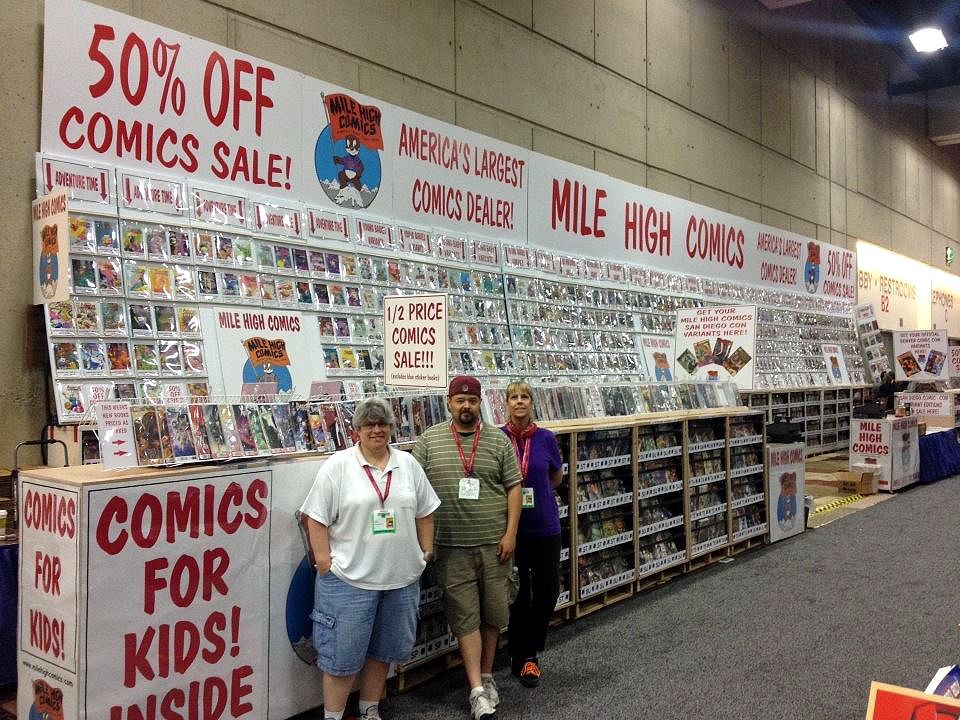Pointing to "seismic changes" in the number of convention-exclusive variants offered by publishers and toymakers, Mile High Comics President Chuck Rozanski has announced that after more than four decades, this may be his last year at Comic-Con International.
While he acknowledges in an installment of his Mile High newsletter that "the detrimental effects of exclusives at San Diego is not a new phenomena," he asserts "the breadth and the scale" of those products have changed.
"No longer are exclusives limited to just a few booths, or only to Wednesday evening," Rozanski writes. "We are now seeing all of the major comics publishers, and every single toy and game company, creating limited edition products that they deny us. This aversion to helping comics retailers has become so agregious [sic] and pernicious that I heard from my fellow dealers that some publisher and manufacturer booths were refusing to even allow anyone wearing a dealer's badge to stand in line. That is beyond ridiculous."
He estimates Mile High will suffer a $10,000 loss at Comic-Con. For comparison, Rozanski notes that his seven-booth display premiered six weeks earlier at the three-day Denver Comic Con, with 20,000 fewer comics. But even with attendance about half that of San Diego, Mile High's hourly sales were double what they were at Comic-Con International.
"That made all the difference, as we turned a reasonable profit in Denver, as opposed to a massive loss in San Diego," Rozanski writes. "So how could an extremely successful back issue comics booth in Denver become so stunningly unsuccessful in San Diego? Because in Denver we were not being utterly crushed by the very publishers who's [sic] goods we sell on a daily basis. In a nutshell, the comics publishers with booths at the San Diego convention have so cleverly exploited the greed and avarice of comics fans through limited edition publications that are only available through their own booths, that there is no longer enough disposable income left in the room to sustain us. A sad state of affairs, but also completely true."
(Note: "The greed and avarice of comics fans" is a reference to Rozanski's comments in the previous newsletter about the "significant number of 'fans' [who] now attend the San Diego convention only to turn a quick profit" by selling the exclusives on eBay at a hefty markup.)
"So where does this leave us?" he concludes. "As much as I hate to admit this, it now seems obvious to me now that we finally have to end a lifetime of exhibiting at San Diego, and instead seek out relatively popular comics conventions in other cities. Especially conventions where our publisher friends choose to not exhibit. Doesn't that thought just drip with irony? Comics publishers have evolved to become toxic to their own retailers. Who would ever have thought that would happen? Even with all my many years of experience, I simply cannot believe that our world has now been so perverted by the mania for exclusive variants, that comics retailers can now only survive in the absence of the very publishers we support. No matter how you look at it, this is a profoundly sad day."

